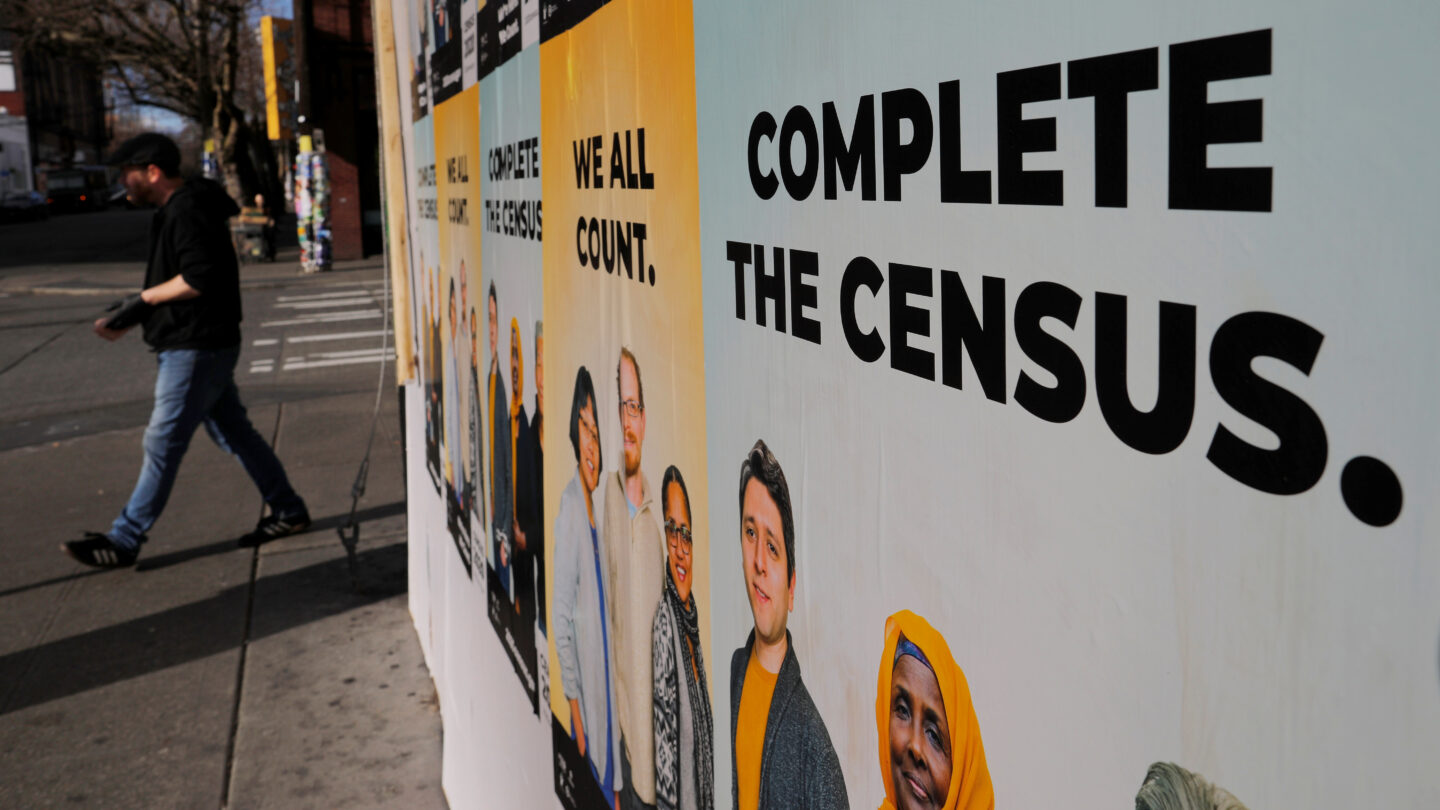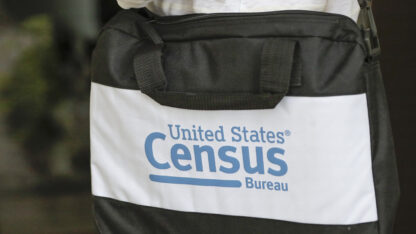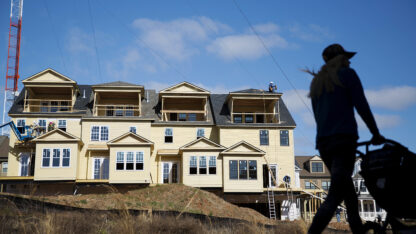The growing racial gap in U.S. census results is raising an expert panel's concerns

Brian Snyder / Brian Snyder
The widening racial and ethnic gaps in how accurately different populations are counted in the U.S. census threatens the equitable distribution of political representation and federal funding, warns a new report by an expert panel who reviewed the 2020 national head count.
Most notably, the estimated net undercount rate at which Latinos were left out of the 2020 census was more than three times the rate in the previous once-a-decade tally. For people who identified as white and not Latino, the net overcount rate — fueled by counting a person more than once at different addresses — almost doubled from 2010 to 2020.
“There’s always going to be error in a census,” says Teresa Sullivan, a sociology professor and former president of the University of Virginia, who chaired the National Academies of Sciences, Engineering and Medicine panel that was commissioned by the Census Bureau.
Still, the panel’s report, released Tuesday, urged the bureau to take steps to learn from the shortfalls of the 2020 census and improve on the next constitutionally required count. Those statistics are set to be used to determine each state’s share of congressional seats and Electoral College votes, as well as redraw voting districts for every level of government and guide more than $2.8 trillion a year in federal money for public services across the country.
The report concludes an independent evaluation of the 2020 census results that began more than two years ago amid concerns about how the bureau’s original plans were upended by the COVID-19 pandemic and interference by former President Donald Trump’s administration, which ended counting early and tried unsuccessfully to add a census citizenship question that was likely to scare off many Latinos and Asian Americans.
“The overriding, signature achievement of the 2020 Census is that there was a 2020 Census at all,” the panel’s report says, crediting the work of the bureau’s career civil servants.
The panel, however, also notes that there were unusually high levels of census participants reporting ages ending in 0 or 5. In demography, the phenomenon is known as “age heaping,” and it’s an indicator that the 2020 census results are marred by rough estimates of people’s ages from neighbors or landlords reporting information on behalf of households who did not fill out a census form themselves or participate in an interview with a census worker.
Encouraging more households to self-respond is key to getting more accurate results from the 2030 census, says Sullivan, who hopes the bureau will continue the advances it made in 2020 by allowing all U.S. households to get counted through the internet.
“Had we not been using that under the pandemic conditions, I think this would have been really a disastrous census,” Sullivan adds. “And we have reason to believe, particularly with the expansion of digital infrastructure, that more households would be able to use it in 2030. And that is a capability the Census Bureau should work to develop and should advertise.”
Another strategy for improving the count that the bureau has been focused on is increasing the use of government and other administrative records to come up with a tally and demographic profile for more of the country’s residents. Relying less on sending out census mailers and door knockers to visit homes could bring down costs, but the panel’s report warns against “rushing” to transform the 2030 census.
“That kind of move to an administrative records-based census is a much longer-term proposition for which the evidentiary, technical, and legal base must be carefully developed,” their report says.
The panel highlights the bureau’s controversial transition to a new privacy protection system amid the 2020 census as a scenario for the agency to avoid in the future.
“There needs to be time for prototyping, consulting the community, considering the consequences in the rollout and so on,” Sullivan says. “There wasn’t enough time to do that with differential privacy, and so there have been some adverse results, one of which is a considerable delay in getting publications from the census.”
Bureau officials say they put those new safeguards in place to keep people anonymous in publicly available data, but critics have raised concerns that they have made some of the 2020 census results, particularly at the local level, useless because of the added “noise,” or data the bureau injected to fuzz certain results.
The agency has also limited its release of quality metrics about the 2020 count in order to, officials say, protect the confidentiality of people’s personal information.
While the bureau gave members of the panel special access to 2020 census data for their evaluation, Sullivan says she hopes the bureau is planning to release more detailed quality metrics to the public for the 2030 census.
“It may not be possible to do it for 2020, but for 2030, certainly transparency and data equity suggest that making more of the data available to the people is an important thing,” Sullivan adds. “The people did pay for it.”
Edited by Benjamin Swasey
9(MDAxODM0MDY4MDEyMTY4NDA3MzI3YjkzMw004))








